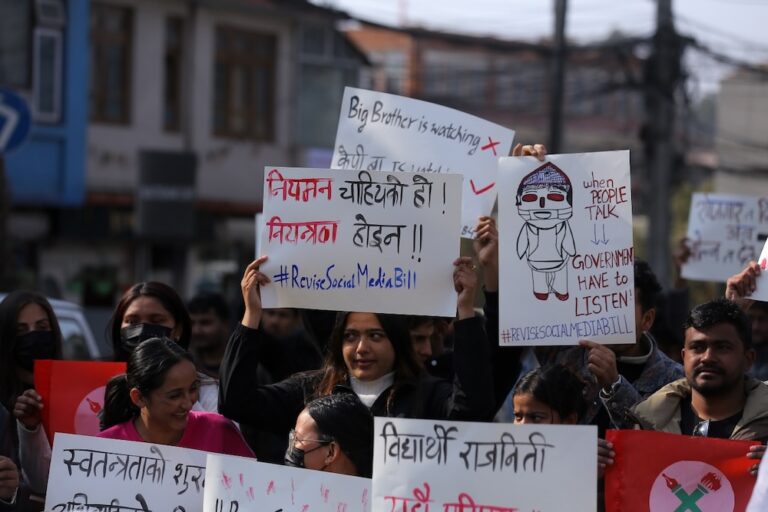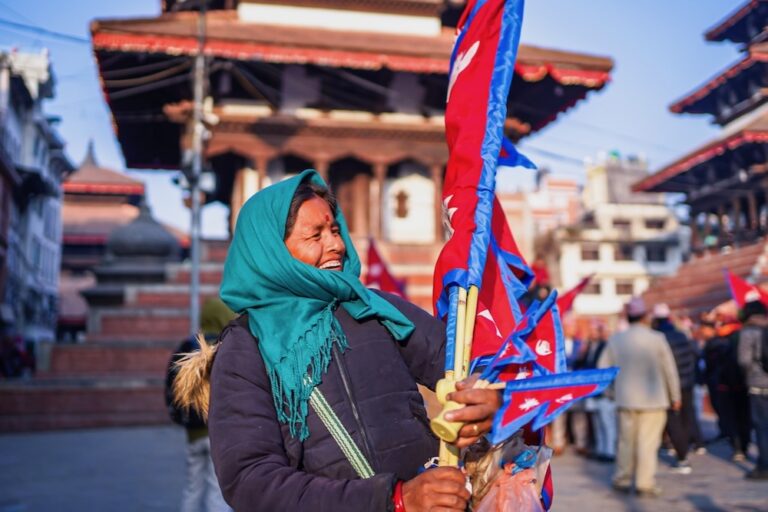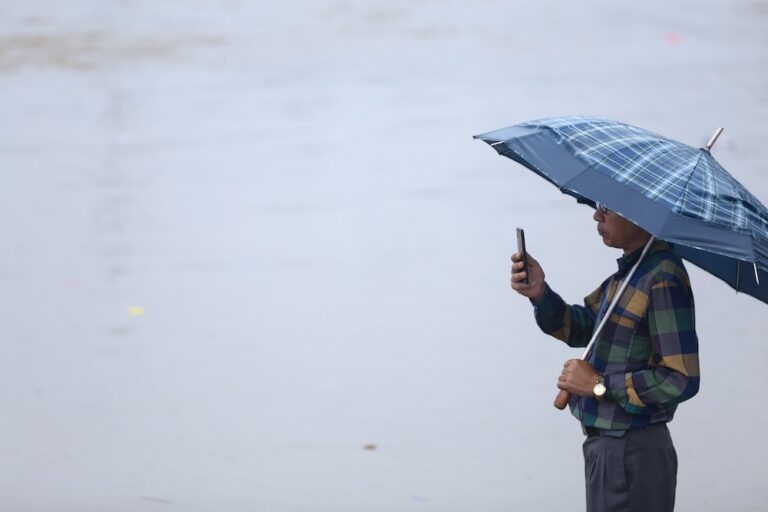(CEHURDES/IFEX) – CEHURDES has welcomed an interim Supreme Court order directing the royal government to reverse a ban on the re-broadcasting of BBC Nepali Service over a leading FM radio station in the country. In its 7 December 2005 verdict, a division bench comprising Justices Khil Raj Regmi and Damodar Prasad Sharma ruled that there […]
(CEHURDES/IFEX) – CEHURDES has welcomed an interim Supreme Court order directing the royal government to reverse a ban on the re-broadcasting of BBC Nepali Service over a leading FM radio station in the country.
In its 7 December 2005 verdict, a division bench comprising Justices Khil Raj Regmi and Damodar Prasad Sharma ruled that there were not sufficient legal grounds to ban the re-broadcast over Radio Sagarmatha FM and asked the government to reverse its order.
The general secretary of the Nepal Forum of Environmental Journalists (NEFEJ), which runs Radio Sagarmatha, had filed a writ petition against the government’s instruction to the FM station that it stop re-broadcasting BBC Nepali Service.
The Ministry of Information and Communications had issued the order even as the court issued a stay order last week over the ban on newscasts on FM radio stations.
On the evening of 27 November, the government raided the office of Radio Sagarmatha FM, the first community radio station in South Asia, seizing its equipment for up-linking BBC Nepali Service and taking into custody four journalists and a radio technician. A woman journalist was released the same night while the rest were released the following day.
The authorities claimed that they took the action against Radio Sagarmatha because it was going to broadcast an exclusive interview with the Communist Party of Nepal (Maoist) leader, Prachanda. Radio Sagarmatha, however, said the station was raided while it was playing music, not the interview.
Radio Sagarmatha FM resumed the re-broadcast of BBC Nepali Service on the evening of 7 December.
BBC Nepali has been the only objective and impartial source of coverage on Nepal’s national affairs for millions of Nepali listeners since shortly after the seizure of power by King Gyanendra on 1 February, when the government banned news bulletins by all private and community-run radio stations in the country.
The court verdict has not only opened way for re-broadcast of BBC Nepali Service, it has also raised the morale of Nepali media workers who are fighting relentlessly for their right to press freedoms and freedom of expression.
CEHURDES urges the Supreme Court to stay its order and to lay down a clear precedent so that the government cannot take similar steps in future to muzzle the Nepali media, including independent radio stations.


